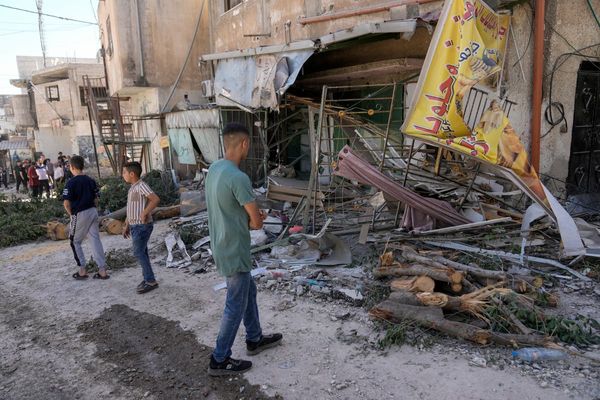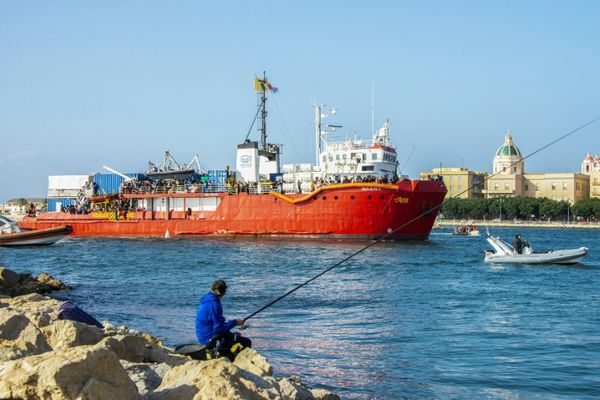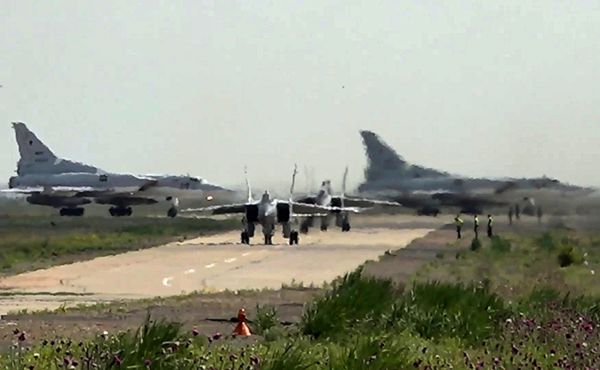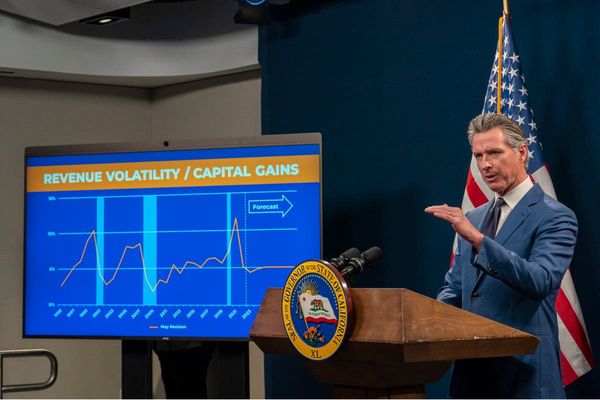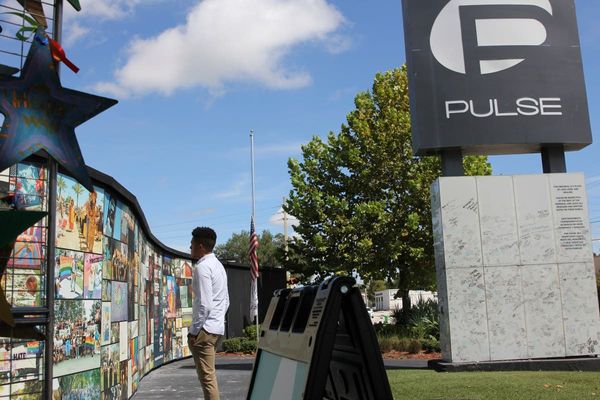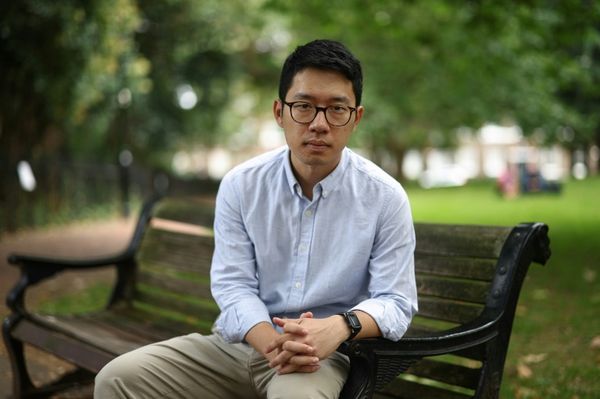
Most of the gates to the bush blocks of Wieambilla, roughly halfway between the towns of Tara and Chinchilla in Queensland’s western downs region, carry warning signs.
Some warn of dogs and firearms. Some of the consequences against unauthorised entry. One simply reads “Keep Out”.
Land here is cheap and parcelled into relatively small blocks compared to the large crop plantations on the rich soil to the east, and the sprawling cattle stations to the west. So, over the years, Wieambilla has become a mecca for an assortment of people seeking to retire cheap, live alternative lifestyles or drop out – trends accelerated by a new wave of arrivals since the pandemic.
Some have set up hobby farms amid the gas rigs and pipelines that crisscross ironbarks and cypress pines forest and paperbark scrub. Others tinker with old cars and run-down machinery that litter their yards.
Not only do “the blocks” – as locals in town call it – feel isolated, the area is a notorious phone reception blackspot. This is no country to enter a stranger’s property lightly.
Yet that was the job of four police officers on Monday afternoon as they investigated a missing person’s report.
Immediately they were set upon in a hail of bullets.
Constables Rachel McCrow, 29, and Matthew Arnold, 26 were shot down and later, police allege, executed where they lay. Killed too was a neighbour, 58-year-old Alan Dare, who came to investigate the gunshots. Two officers managed to flee, though police allege her assailants attempted to flush a wounded Const Keely Brough from her place of refuge by burning the country around her.
By the time the sun rose the next day, police had shot dead the alleged assailants – Gareth Train and his wife, Stacey, and brother, Nathaniel – taking the death toll to six.
On Tuesday morning near the scene of the shootout, the smell of smoke hangs thick still. Police are halfway down Wains Road, a gravel track barely discernible in places beneath thick grass and, in others, barely passable under water from recent rains.
The officers are protecting the crime scene, turning around news crews that seek to descend on the site. They look traumatised and disbelieving.
As does Cassy, who runs a menagerie of pigs, goats, guinea fowl and chickens on the adjoining block.
“I’m shaken,” Cassy says. “This is a small country community. These things don’t happen here.”
Her daughter, Jess, had a shift at her work in Tara on Monday, and so Cassy had decided to spend the night with a friend in the town.
“I’m just lucky I wasn’t home last night,” she says. “I would have been by myself.”
Cassy says she was still mourning the death of her neighbour, Alan Dare, a man she described as “lovely, quiet” and “just out here, trying to do what you do out here.”
But despite living in Wieambilla for about five years, Cassy says she had no idea who the Trains were.
Which is not unusual, according to another Wieambilla resident, Jen, a 69-year-old self described “blockie” and widow.
“In the blocks, you’re lucky enough to know your neighbour,” Jen says, as she caught up with friends and the news in Tara on Tuesday.
“I’m unlucky enough to know mine,” her friend and fellow blockie Chris says, referring to others who live in the area.
Jen says that with many of the homes built in the middle of their blocks, hidden behind scrub and trees, she not only didn’t know many of her neighbours but had “no idea what they were up to”.
Still she, like everyone else, is shocked.
“This is a beautiful town,” she says.
“You get your robberies and things like that around here …”
“Lots of drug raids,” Chris adds.
“But shooting cops?,” Jen says. “Things like that don’t happen here.”
It’s a line frequently repeated on the streets of Tara. This is a town built on cattle and cotton, wheat and sheep. But like the rest of the world, it is a town that has changed over recent years, says Pip Smit, the operator of the local motel.
“A lot has changed since all this Covid bullshit,” Smit says. “A lot of people have bought up blocks to get away from all the madness happening in the city. There’s a lot of new faces in town.”
Smit meets many of them as they seek temporary accommodation while they look for land of their own. He also knows them from the “support group” he runs for those who refused to be vaccinated against Covid.
“There’s been a split come over the town since all the discrimination shit, when they decided to lock people out of pubs for not being jabbed,” he says.
While restrictions have eased, Smit still simmers. Some people have long memories, he says.
“What the pub and bowls club did to us, I’ll never set foot in there again,” Smit says.
His group still holds regular meetings and guest talks. He can’t recall on the spot the names of the guest speakers.
“One was a lady who was a nurse for 40 years who had seen all the damage done,” Smit said.
“Another was a guy with legal experience. I don’t know if he was a lawyer or had worked in the law, but he told us about our rights.”
As well as hosting meetings for like-minded locals, he and wife Tracey have set up a community garden called Turning Point in the main street of town. Above it looms a large black sign, thick with hand-painted white messages.
“How did democracy turn into dictatorship?” one reads. “Say NO or it never ends.”
Flags flutter above it: “the People’s Revolution” and “Mandate Freedom”.
They are replacements for less provocative ones, Smit says.
“A few people didn’t take too kindly to us having upside down flags,” he says.
These are not the only signs up on the buildings owned by Tracey and Pip Smit. Another wall is littered with images of cartoon animals and messages about animal rights.
“We got enough shit with all the vegan stuff,” he says.
“It doesn’t go down well in a town like this.”
Not long afterwards a B-Double rumbles down the main drag loaded with cattle, the third in a matter of hours, and the town is thick once again with the smell of dung.
Small groups of people cluster, exchanging news. No flag or slogan is required to see that this is a town in distress.
A woman and her son, wearing Santa Claus outfits, walk among them handing out candy canes.
“Merry Christmas,” she says to one and all.
“God knows we need it.”
